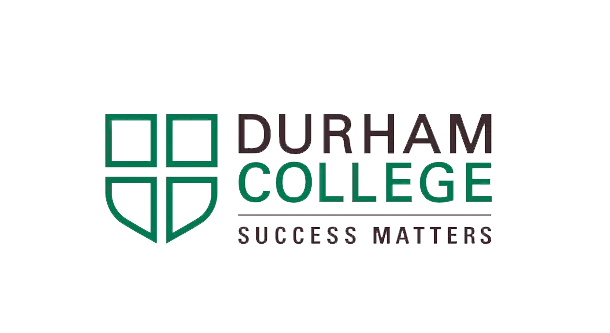Durham College meets with the APBOT to discuss Government Relations

Q: What is your role at Durham college?
A: My role at Durham College is manager of strategic reporting and government relations for the last five years. There are two halves within my role in the college. The strategic reporting involves strategic planning, business planning, and some of our administerial reports, such as our strategic mandate with the province. I curate those documents, and I help pull those pieces together some data points, and I work with the leadership, helping to build the College’s business plan annually and keeping track of our strategic plan, and our goals. The other half being Government Relations, that’s my involvement from a communications and public relations perspective working predominantly working with all three levels of government. Most of the work is provincial and municipal, municipal is very important as you have to be connected locally to the needs of your surrounding community. And of course, the College is a crown corporation and so we report to the Ministry of Colleges and Universities.
Q: What do you think Government Relations means to the education sector?
A: I think it's very important for the education sector, especially in Canada, and speaking broadly, post-secondary is public, and so, colleges in Ontario we all follow under one act within the provincial legislature. Government relations for colleges are ingrained in our systems, and it dictates how we function, but in terms of government relations, it’s a means of collaborating with governments to achieve the goals of training, economic development to some extent, and education.
Q: What issues would you say are the most pressing facing post-secondary education, particularly Colleges?
A couple of priorities for colleges these days are securing sustainable funding to address inflation, increased demand for services, maintenance, and new program development. Another area we are watching closely is international education, which includes advocacy for international study permit policy at the federal level, as well as resources provincially and locally to support international students when they come to Ontario. For Durham College, the past four years we’ve been focused heavily on increasing our skilled trades training footprint as one example here in the region. This led to the new building at the Whitby campus, called the Ontario Power Generation Centre for Skilled Trades and Technology. This addition gave us room for an additional 700 trades students in areas such as elevating devices, electrical, plumbing and more. There’s huge demand in industry and from students in the skilled trades, and there is lots of advocacy around educating youth about how great these careers are. One way Durham College does this is by hosting an annual Young Women in Skilled Trades and Technology conference, in partnership with our local school boards. That event has run for a few years now (virtually during lockdowns) and has been very successful at bringing a new generation into the trades shops.
Q: How can building partnerships outside of the education sector, for example, the business community assists in Durham College’s Government Relations Advocacy?
A: Before I touch on the government relations part, the key thing I would say is, every single program we have has a program advisory committee that is made up of industry partners, therefore every program has industry input annually. When we bring in new programs, we have to consult industry, so when we bring in new programs, we have to consult industry. If there is any program we do, there has to be a demand from both students and industry, we are not going to offer courses, if there is no demand, for example, if there are no jobs in Durham region. If we launch a program we have to assess the industry requirements, and what the long term scope of how that sector and economy would look in five, even ten years from now. From a government relations perspective lens, different advocacy committees such as Boards of Trades are fantastic by learning firsthand what industry was concerned about. It gave extra access to information and advocacy resources, the conversation across the regions helps the college stay inform. So as a government relations representative for the College, I find it very useful to listen and hear what they are concern about what to advocate for. But it all comes down to advocacy for our students, it's about improving their educational resources, access, and supporting them with their careers, and this is conducted through networking and career building.
Q: Is this a new initiative to work with Board of Trades in supporting students through networking?
A: It started at the tail end of last year, though the conversation has been ongoing for a few years, it really didn’t come to fruition till the tail end of last year, but this year we’ve really seen the in-person networking take off and established. And I think it is something that will continue to be in place.
Q: How does cooperating with universities assist or push forward Durham College’s agenda on education?
A: We are in a unique position here, as of course this is a unique campus, I would say in Canada where we have a college and a university on the same campus. We do work closely with Ontario Tech, we connect with both institutions, and when speaking about the overarching advocacy pieces around quality assurances for international students, funding sustainability when addressing affordability in weighing inflation, that’s university and college. We are finding as a system more and more, there’s joint advocacy. There are pieces we can work together as two systems on, so for example, when you go to the OCC annually for their policy resolution, college and university representatives will work together and even swap who will represent the industry for presenting resolutions. At a provincial advocacy level we will work together, because a lot of this is shared, but if you look at post-secondary in Ontario each university has its own legislation, whereas every single public college is within one Act. So that gives you a bit a lens to show how our systems are a bit different as well. Whereas we would have broad level shared interests, by and large, we try to work together where and when we can.
Q: How do you see the Ajax Pickering Board of Trade assisting Durham College’s advocacy initiatives?
A: I think it’s connecting the dots between some of the concerns individuals are having today, for example, labour and skills. When you have to survey, and the membership identifies their concerns it's great data for the college, and that goes back to what was mentioned earlier about launching a new program, we require as much data as possible. And when the board of trade receives certain information or data back from its membership, we can then take that data and inform ourselves as well as the province. The conversation is reciprocal from the ground up and you will see it mirrored in provincial planning, for example, economic budgets where they are focused on skilled trades as we know this already as we heard from membership surveys. And from a general perspective, the student partnership with the Board of Trade, is speaking to the broader goal of career development, because when we advocate, we are advocating to improve our services for our students, that’s really it. It is a really well-run system and any opportunity we can drive more value for students we will take it. So we are really excited to see the partnership with the students and the APBOT take place, the surveys provided are excellent and the conversations are great, and the overall opportunity to meet with all levels of government with the business community to advocate and collaborate.






